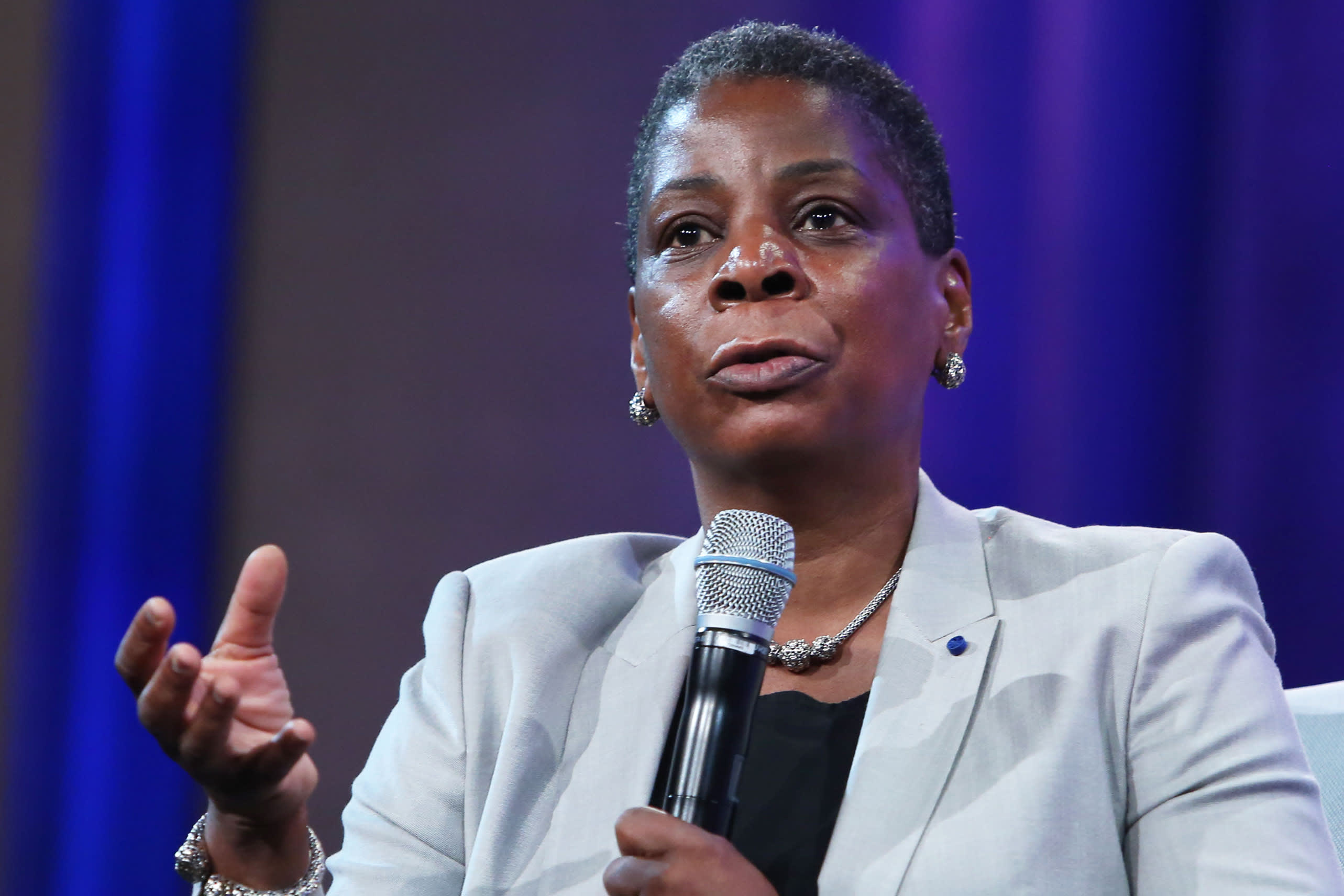Ex-Xerox CEO Ursula Burns says companies must ‘change the criteria’ to create diverse boards

Ursula Burns, CEO of Xerox speaking at the 2105 CGI Annual Meeting in New York.
Adam Jeffery | CNBC
Ursula Burns, who was CEO of Xerox from 2009 to 2016 and the first Black woman to run a Fortune 500 company, says corporations have to “change the criteria” for directors to create more diverse board rooms.
Burns spoke on CNBC’s “The Path Forward: Race and Opportunity in America” on Tuesday evening, anchored by Jon Fortt and Andrew Ross Sorkin. She was joined during the hour-long program by Black leaders, including Starbucks COO Rosalind Brewer, former Time Warner CEO Richard Parsons, former Oracle co-president Charles Phillips and former Aetna CEO Ron Williams.
The show focused on the under-representation of Blacks in corporate leadership positions and on boards, and explored why some companies and industries are further along than others in changing the equation.
According to Burns, companies have to stop screening for people who have been CEOs as they build out their boards, because Blacks have been excluded from those roles. Even today, there are only four Black CEOs in the Fortune 500.
“You can probably count on two hands the number of candidates you’ll get that are diverse,” said Burns, who’s currently an Uber director. “It’s a fallacy and a structural form of racism and exclusion to say that the only people who can actually participate are people that have this very narrow set of skills.”
Asked whether quotas are the right approach, Burns said that “quotas are the result of failure.” The problems that are gaining resonance today, in the aftermath of the murder of George Floyd and other instances of police violence towards Blacks, have been around for decades.
“People get frustrated and they start to mandate things and they put in place quotas,” Burns said.
Williams, who was CEO of Aetna from 2006 through 2010, agreed that companies need to “broaden the applicant pool,” when filling out leadership roles. The CEO has to lead in the effort, he said, adding that the board has to hold the CEO accountable and shareholders have to hold the board accountable.
“When you look for the absolute best candidates,” Williams said, you find that much more often “it’s a woman or person of color.”
Phillips, who left Oracle in 2010 for software company Infor and was CEO there until last year, said he’s working to help his Silicon Valley colleagues reach a wider audience of talent. He said he often hears from venture capitalists, who complain about having too few Blacks in the pipeline.
“You live in a place where Black people aren’t,” said Phillips. He said he’s connecting investors to his network in the South and parts of the East Coast with higher populations of minorities.